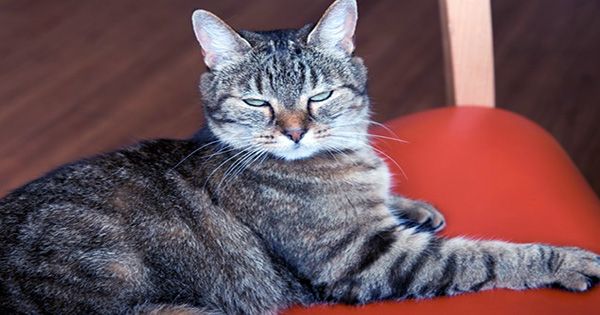According to the authors of recent research published in the Journal of Research in Personality, many of us may be inadvertently living with a psychopath. At first look, our cute and cuddly companions have a dark side that can now be detected owing to a newly designed psychopathy test for cats. The survey assesses 46 feline characteristics that can be used to detect a psychopath pet and is available online for any cat owner to complete. The researchers started by polling 549 people on their cats’ degrees of boldness, meanness, and inhibition – the three features that make up the triarchic model of human psychopathy.
The scientists identified 40 behavioral themes based on these responses, which they utilized to build a preliminary 58-item cat psychopathy questionnaire. They then gave the poll to another 1,463 cat owners and studied the results to improve the survey.
The final version of the questionnaire, dubbed the CAT-Tri+ exam, asks about 12 various behaviors that contribute to a cat’s boldness, such as if torture mice and other prey animals before murdering them. The next 12 questions assess disinhibition, which includes actions like sitting on laptops, reading books, and attempting to utilize other objects. The questionnaire then attempts to measure meanness by eliciting responses such as an apparent lack of shame after offending. The CAT-Tri+ model of psychopathy contains the two extra features of pet-unfriendliness and human-unfriendliness in addition to these triarchic traits.

The first includes actions such as evicting other pets from “favorable positions” such as beds and sofas, while the second includes actions such as purring while attacking people. The authors found that “disinhibition and pet-unfriendliness indicated a better quality cat-owner connection; meanness and boldness predicted a worse quality relationship” after conducting the exam and quizzing owners about their interactions with their cats.
The answers offered by this questionnaire, according to the researchers, can help owners better understand their dogs and take steps to improve their well-being. “A cat with a high ‘boldness’ score, for example, may benefit from enormous cat trees and towering scratching posts,” they write, “since the CAT-Tri+ items imply that a bold cat likes exploring and climbing.”
They also claim that this test might assist animal shelters in rehoming cats by finding eligible owners. “A cat with a high ‘pet-unfriendly’ score, for example, may benefit from being rehomed in a family without other pets,” she says. While living with a psychopathic carnivore may be disconcerting, the authors claim that many of the qualities involved are seen in a wide range of animals.
Such behaviors were likely beneficial to cats’ evolutionary ancestors’ ability to hunt, breed, and protect their territory in the past, and were thus necessary for the species’ survival. Nowadays, however, it just results in a large number of goods tossed off tables.















